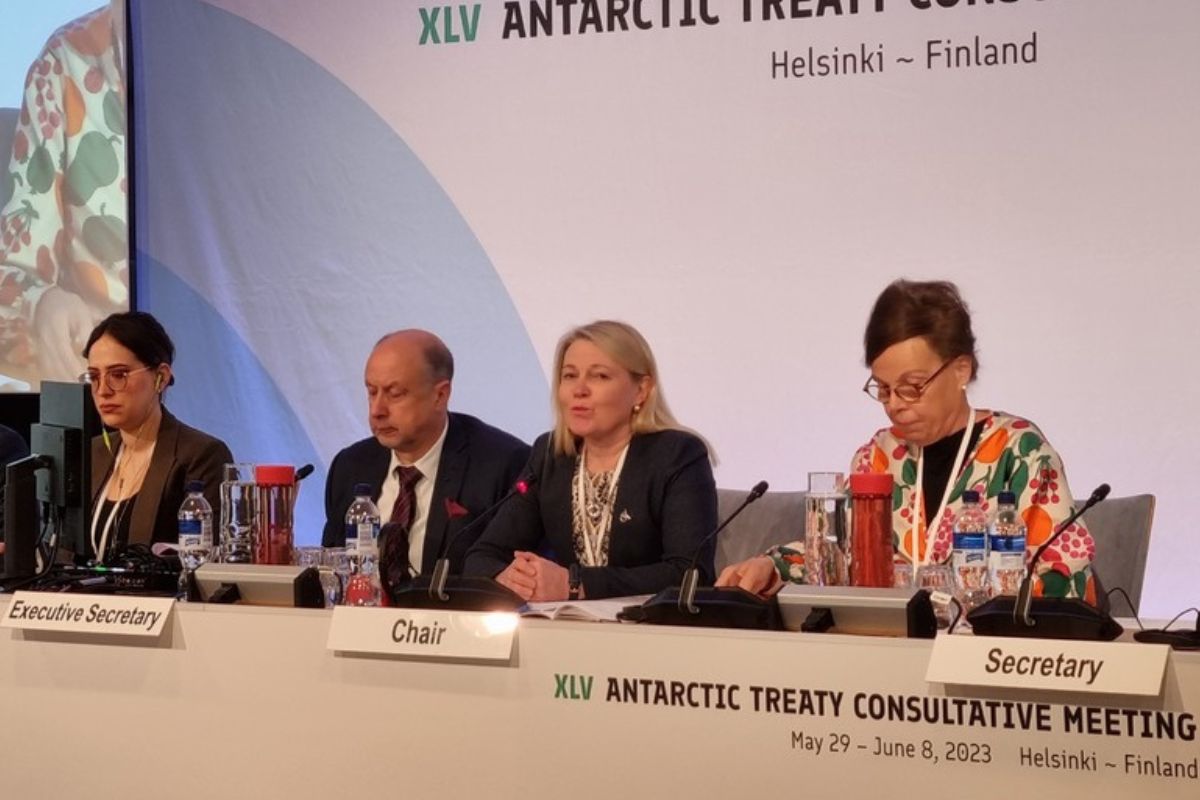The Ministry of Earth Sciences (MoES), Government of India, through the National Centre for Polar and Ocean Research (NCPOR), will host the 46th Antarctic Treaty Consultative Meeting (ATCM 46) and the 26th Meeting of the Committee for Environmental Protection (CEP 26) from May 20 to 30 in Kochi, Kerala.
This is in line with India’s poise to facilitate constructive global dialogue on environmental stewardship, scientific collaboration, and cooperation in Antarctica, the Ministry of Earth Sciences said on Wednesday.
Advertisement
The ATCM and meetings of the CEP are pivotal in the international community’s ongoing efforts to safeguard Antarctica’s fragile ecosystem and promote scientific research in the region.
Advertisement
Convened annually under the Antarctic Treaty System, these meetings serve as forums for Antarctic Treaty Consultative Parties and other stakeholders to address Antarctica’s pressing environmental, scientific, and governance issues.
The Antarctic Treaty, signed in 1959 and entered into force in 1961, established Antarctica as a region dedicated to peaceful purposes, scientific cooperation, and environmental protection. Over the years, the Treaty has garnered widespread support, with 56 countries currently party to it. The CEP was established under the Protocol on Environmental Protection to the Antarctic Treaty (the Madrid Protocol) in 1991. The CEP advises the ATCM on environmental protection and conservation in Antarctica.
India has been a consultative party to the Antarctic Treaty since 1983. It participates in the decision-making process along with 28 other consultative parties to the Antarctic Treaty to date. India’s first Antarctic research station, Dakshin Gangotri, was established in 1983. At present, India operates two year-round research stations: Maitri (1989) and Bharati (2012). The permanent research stations facilitate Indian Scientific Expeditions to Antarctica, which have been going on annually since 1981. In 2022, India enacted the Antarctic Act, reaffirming its commitment to the Antarctic Treaty.
As a signatory to the Antarctic Treaty, India remains dedicated to environmental protection, scientific cooperation, and peaceful operations in Antarctica.
Dr M Ravichandran, Secretary of the Ministry of Earth Sciences, highlighted the importance of India hosting the ATCM and CEP meetings in 2024. He said, “We look forward as a country to fostering meaningful exchanges of knowledge and expertise to advance the shared goals of environmental conservation and scientific research in the Antarctic region.”
The Antarctic Treaty Secretariat (ATS) serves as the administrative hub for the Antarctic Treaty System. Established in 2004, the ATS coordinates the ATCM and CEP meetings. It also serves as a repository for information pertaining to Antarctic affairs, ensuring its dissemination among member nations. Facilitating diplomatic communication, exchanges, and negotiations, the ATS fosters effective governance and management of the Antarctic region.
It also monitors compliance with Antarctic Treaty provisions and agreements and provides assistance and guidance to Antarctic Treaty Parties on treaty implementation and enforcement matters.
Key items on the 46th ATCM agenda include strategic planning for sustainable management of the Antarctic and its resources; policy, legal, and institutional operations; biodiversity prospecting; inspections and exchange of information and data; research, collaboration, capacity building, and cooperation; addressing climate change impacts; development of tourism framework; and promoting awareness. Lectures of the Scientific Committee on Antarctic Research will also be conducted.
The 26th CEP agenda focuses on Antarctic environment evaluation, impact assessment, management, and reporting; climate change response; area protection and management plans including marine spatial protection; and conservation of Antarctic biodiversity.
The hosting of the 46th ATCM and 26th CEP meeting reflects India’s growing role as a responsible global stakeholder in efforts to preserve Antarctica for future generations. Through open dialogue, collaboration, and consensus-building, India remains committed to upholding the principles of the Antarctic Treaty and contributing to the sustainable management of one of Earth’s last pristine wilderness areas.
India’s scientific and strategic endeavours in the polar regions (the Arctic and Antarctic), the Himalayas, and the Southern Ocean are under the National Centre for Polar and Ocean Research (NCPOR) in Goa. NCPOR is an esteemed autonomous institution under MoES, Government of India.
The MoES has set up a Host Country Secretariat with Dr Vijay Kumar, Scientist & Adviser, as Head at MoES HQ to successfully coordinate and organise the event. India has proposed the name of Ambassador Pankaj Saran, a distinguished former Deputy National Security Adviser, to chair the 46th ATCM.
Participation in the ATCM and CEP meetings is restricted to delegates designated by parties, observers and invited experts.
Over 350 delegates from over 60 countries are expected to attend the 46th ATCM and 26th CEP this year hosted by NCPOR, MoES at Lulu Bolgatty International Convention Centre (LBICC) in Kochi, India.
Advertisement











